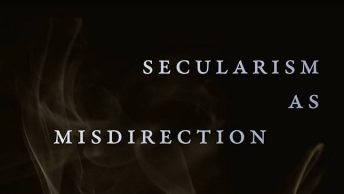The Government has also clarified that the staggering of the implementation of the 2006 Act was permitted in the statute, not on account of any infirmity in the data available with regard to the OBC population but having regard to financial, physical or academic limitations, if any, or in order to maintain the standards of education, if such limitation or difficulty was expressed by any institution. It was submitted that there was no statement made by the ASG that the staggered implementation of the Act was necessitated on account of any shortcoming in the data.
On the question of stay, the Government referred to the same case, which I had cited in one of my previous posts, but added that the present Act under challenge could be considered as a socio-economic legislation, if a distinction is sought to be raised between economic and non-economic ones to apply the principle laid down in that case. (in Bhavesh D. Parish v. Union of India, [(2000) 5 SCC 471] .
The Application makes one more point, which the discussion in this blog did not anticipate – that the Judiciary cannot examine the materials relied upon by Parliament for the purpose of legislation. It said: “the interim order dated March 29, 2007 appears to sustain a challenge which invites this Hon’ble Court to enquire into whether Parliament, while exercising its primary function, that of legislating, had material before it to support the enacting of the 2006 Act. The interim order dated March 29, 2007 further appears to sustain a challenge which seeks to scrutinize the adequacy or otherwise of the material underlying the 2006 Act. It is most respectfully submitted that such an inquiry departs from the well established principles in regard to judicial review of legislation”.
The Application has also missed an opportunity to correct the wrong attribution of a paragraph (with a contrary inference) to Indra Sawhney, rather than to Justice O.Chinnappa Reddy in an earlier Judgment, (K.C.Vasanth Kumar) in a different context, which I have referred to in an earlier post. This paragraph in the Interim order cast aspersions on the OBCs, saying many of them queue up to claim the OBC status, without justification.
The outcome of the hearing on April 23, therefore, will be watched with interest.






Thanks for making available the application by the govt. of india.
I wonder whether this hair splitting distinction between socio-economic and economic law/policy will be acceptable.
Reservation is a question of fundamental rights enshrined in the constitution and the Act derives its legitimacy from a constitutional amendment.So
it is better to judge it from
a constitutional perspective.
Not all socio-economic/economic
laws flow from a constitutional
amendment.
Is there bar on the highest
court considering any document
or record in its hearing or
in considering it, irrespective
of the origin or purpose of the
document.
I join Mr. Srinivas in thanking V. Venkatesan for making the full text of the Govt’s application available. It makes for interesting reading, and is a valuable resource for tracking the goverment’s approach to the issues raised. It also allows us to get a sense of the tenor of the final arguments that will be advanced by the government in this case.
I realise that this is an issue that Mr. Venkatesan has referred to earlier (and that this has also been the subject of disagreement between him and Vivek Reddy), but I want to revisit the issue of the
line of Supreme Court cases that assert that legislation involving “economic matters” or “economic activities” deserve to be treated with greater latitude by courts. In other words, I am questioning the
applicability of the Bhavesh Parish (2000) case to Mandal II, as has been asserted earlier by Mr Venkatesan, and now in the Union of India’s application.
The case of Bhavesh Parish (2000) involved a challenge to Section 45S of the Reserve Bank of India (Amendment) Act, 1997, which was clearly an economic legislation. Justice Kirpal’s judgment in that case, in upholding the constitutional validity of Section 45S, relies on the earlier ruling of the Supreme Court in R.K. Garg’s case (1982) as authority for the proposition that Courts should be reluctant to intervene in economic issues. The Garg case involved a challenge to provisions of the Special Bearer Bonds Act, 1981, and the Court in Garg, after classifying it as a tax statute, cited American cases to hold that being an economic legislation, it was entitled to greater judicial deference. The category of cases referred to in Garg and Bhavish included tax, utility, and other issues involving economic matters.
Another example of this line of precedents is the Delhi Science Forum case (1996)which rejected a challenge to the privatisation of the Telecom sector. Justice N.P. Singh’s judgment in Delhi Science Forum also cites the Garg case (and decisions of the U.S. Supreme Court where this exception was first carved out by courts) as authority for the proposition that governmental decisions involving economic issues should be given greater latitude by courts.
While quotas in educational institutions do involve economic issues incidentally, they are not the kind of “economic activities” that either Garg or Parish refer to. I agree with Mr. Srinivas and Mr. Venkatesan that, speaking generally, it is doubtful whether “economic issues” should be given a special licence when it comes to scrutinising them for constitutional validity. However, so long as these specific precedents stand, and constitute good law, laws involving “economic matters” do seem to have a special character in India.
I don’t think, however, that the Union govt. is right in arguing that Mandal II falls within that category. The Garg, Delhi Science Forum and Parish line of cases clearly have a very different conception of laws involving “economic activities or matters” and much as I doubt the overall validity of such a category, I cannot see how it can be stretched to cover quotas in educational institutions. The way out for those of us who oppose this category is to argue for its removal, not to argue that it should be expanded to include everything under the sun (which of course is also an effective strategy towards making the category redundant, though a less candid and therefore less legitimate one).
very very informative piece.
I dont know however, if the review of policy decisions as a question came up before the Court. Probably the 2000 case that you have cited might have addressed this.
If reservations is a matter of policy, then going by the decision in BALCO, it is not subject to review unless it violates the FR of an individual. In this case, such cannot be taken into consideration by the Court.
once again, thank you venkateshan for this post and keep us updated.
// Specifically, the statements attributed by the Bench to the Additional Solicitor General, Gopal Subramanium have been denied. The statement that ‘there is need for periodical identification of backward citizens and that for this purpose the need for survey of entire population on the basis of an acceptable mechanism is needed’ has been described as an inaccurate attribution by the Bench. The submission of the ASG was that a head count census was, in fact, not a possible or feasible option.//
The order reads –
“There is no dispute and in fact it was fairly accepted
by learned Additional Solicitor General that there is need
for periodical identification of the backward citizens and for this purpose the need for survey of entire population on the basis of an acceptable mechanism.”
is it likely that what was stated in the order as ‘fairly accepted’ by ASG was the need for periodical identification of BCs? The portion after ‘and for this purpose..” was possibly the court’s observation on a way of doing that periodical identification, and not attribution to ASG?
The need for a periodical identification/revision of the BC list every 10 years is a part of the Backward classes act 1993 (section 11). To a layman (ie not a legal expert) it appears like the Government can not present a different opinion about the *need* for this revision – it is part of the ACT. (http://www.ncbc.nic.in/html/functionsandpower.html)
The act says –
“revision of the lists with a view to excluding from such lists those classes who have ceased to be backward classes”
In practice, the BC list is treated as a one-way list with only additions of potential vote-banks during every election cycle (thus, taking the non-backward population in TN to a mere 3% thru the years).
There have been quite a few deletions from the list also by the NCBC.